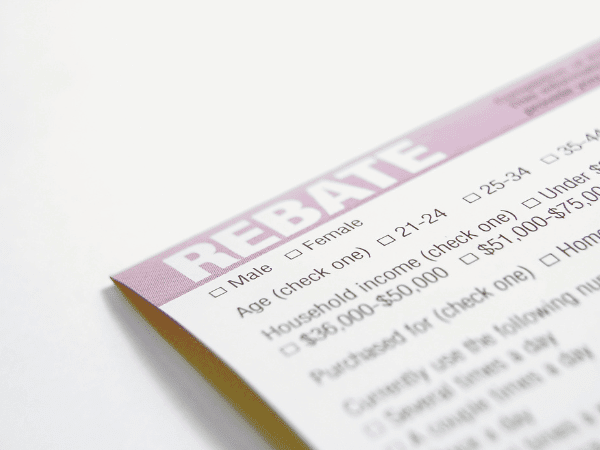Cybersecurity Breach at Change Healthcare
While any commercial enterprises may be potential target for a cybercriminal, insurance carriers and other professional service providers operating in the employee benefits space may be particularly susceptible or otherwise vulnerable to cybercrime activities, respecting both the range of plan-level PHI they receive, maintain, and transmit, as well as the sheer volume of PHI-implicating transactions within which they engage on a daily basis.
Remember that the viewing and/or exfiltration (that is, the removal of unsecured HIPAA PHI to a location controlled by a cybercriminal, rather than by the covered entity or its agent) may give rise to a noticeable HIPAA breach event; thus, triggering various investigatory duties, harm mitigation responsibilities, breach notification obligations, and other interrelated defensive operations by the sponsoring employer. Employers are encouraged to routinely review and administer their administrative simplification responsibilities, as detailed under HIPAA. To that end, please see the following link for a summary checklist detailing many of the HIPAA administrative simplification requirements for HIPAA covered entities.
Employer Action Items
As a group health plan sponsor, an employer’s responsive obligations arising in the context of certain cybercrime events depends largely upon the underlying funding status of the employer’s core employee benefit plans (e.g., health, vision, and dental plans):
- For fully insured arrangements, the sponsoring employer will generally defer to the plan’s insurance issuers or its carriers for performance of any HIPAA mandated obligations, including any breach-related duties;
- Conversely, self-funded and level-funded plan sponsors are charged to assure their own satisfaction of HIPAA’s privacy and security requirements due to their status as individual plan sponsors of group health plans maintained pursuant to these funding methodologies (in this context, the core benefit plans sponsored by these employers are referred to a “HIPAA covered entities”.
Employer plan sponsors that are HIPAA covered entities may also need to comply with additional interrelated responsibilities arising outside the context of HIPAA (for example, certain obligations memorialized in the organization’s handbooks, its organizational policies and procedures, and its standard operating procedures). Additional privacy and security related obligations for the employer may be detailed in various state-level statutory mandates or even within certain international laws or other global-scope regulations. Finally, note that a diligent review of the employer’s administrative and vendor-related service agreements may give rise to additional employer responsibilities arising in this arena.
The HIPAA breach notification requirements must be individually evaluated and comprehensively performed by HIPAA covered entities, oftentimes with assistance from the employer’s contracted business associates to the extent there is a breach event resulting in the viewing and/or acquisition of unsecured protected health information (PHI). Thus, responsibility for issuing the required and appropriate classes of breach notification (including disclosures to affected individuals, the local news media, and to the Secretary of the US Health and Human Services Department (as applicable) will always consider and depend chiefly upon an analysis of the affected plan’s underlying funding methodology(ies).
Several notifications may be required as a consequence of a data breach. The particulars of notice performance, including the scope of the notice operation and respecting identification of specific parties entitled to such notification, will depend on the scope of the breach and several other factors. Following, please find summaries respecting three distinct types of notice operations:
- Individual Notice. A notice of breach must be provided by the covered entity to any affected individuals. Generally, this notice will be in written form and must be delivered via first-class mail (or by email, if the affected individual has agreed to receive such notices electronically). Notification must take place without unreasonable delay and in no instance, later than 60 days from the date of discovery of the breach. A toll-free phone number must be provided for individuals to use to learn whether their information was involved in the breach. This number must be active for at least 90 days.
A notice may have to be placed on the covered entity’s website or a similar location if more than 10 individually affected persons cannot be reached due to the organization’s maintenance of insufficient or out-of-date contact information;
- Media Notice. A covered entity that experiences a breach affecting more than 500 residents of a state or jurisdiction must notify prominent media outlets that serve that state or jurisdiction. Notification is generally made in the form of a press release to these media outlets, typically including the same information as that contained within the individual notice. The notice to the media must be provided without unreasonable delay, and in no instance later than 60 days after the breach is discovered; and,
- Notice to the Secretary. All breaches of HIPAA protected health information must be reported to the Secretary of US Department of Health and Human Services (HHS) via the Department’s public website. Breaches affecting 500 or more individuals must be reported without delay, and in no instance later than 60 days after the breach discovery; whereas, breaches affecting fewer than 500 individuals must be reported in a summary annual filing that is submitted to the Department via a dedicated web portal, as maintained by HHS.
Summary
Compromised data may include private or personally identifiable information, such as names, addresses, phone numbers, email addresses, birthdates, Social Security numbers, medical records, health history, and bank account and credit card numbers.
When an insurance carrier suffers a data breach, many people are affected, and the stolen information may trigger various responsibilities under the Health Insurance Portability and Accountability Act (“HIPAA”). If a carrier or third-party administrator (TPA) that you work with is attacked by cybercriminals, you need to understand your responsibilities, including development of organizational best practices related to the communication of certain required information, as well as details explaining employer-provided tools and resources intended to mitigate any resulting harms associated with the breach event.
Be aware of specific state-level statutory requirements imposing additional notification requirements on the entities affected by a cyberattack or other breach. State laws may be preempted if they conflict with the federal requirements outlined above. Otherwise, employers or other entities may have to comply with both the state-level statutory requirements, as well as the very comprehensive federal requirements. This could mean that employers would have to meet more stringent requirements, as may be demanded at the state level.
Employee Communication
Communication with employees is important, especially when they may be anxious about a data breach that personally affects them. This is the case regardless of any legal requirements that may apply. Below are a few points to consider as you develop best practices for communication following a carrier data breach:
- Let employees know what’s going on. After a breach occurs, employees may hear about it on the news or from friends and family. Make sure you give them the facts and inform them of how it affects them as soon as you have information from your insurance carrier. Depending on your contracted relationship, you may be responsible for complying with federal or state notification rules, as discussed above.
- Reassure employees of your security measures. As their employer, you possess a lot of personally identifiable and financial information, so make sure they know that the information you store is properly secured.
- Warn employees about the potential for scams, especially ones that are already known. Following large data breaches, phishing scams and other criminal attempts at soliciting personal information proliferate quickly. Scammers will often pose as the affected company and contact individuals under the pretense of helping them to gain sensitive information.
- Take this opportunity to remind employees of the importance of protecting personal and company data. Reminders about passwords and other data security measures may be heeded more strongly following a breach of employees’ personal information.
Whether or not you are legally obligated to provide breach notifications to your employees, you still need to have a strategy in place to communicate with them because affected employees will have questions and concerns.
Contact The Baldwin Regulatory Compliance Collaborative for more information on responding to carrier data breaches.
ADDITIONAL HIPAA INFO
Further details regarding notification requirements are available at www.hhs.gov/ocr/privacy/hipaa/administrative/breachnotificationrule.
For more information
We’re ready when you are. Get in touch and a friendly, knowledgeable Baldwin advisor is prepared to discuss your business or individual needs, ask a few questions to get the full picture, and make a plan to follow up.
This document is intended for general information purposes only and should not be construed as advice or opinions on any specific facts or circumstances. The content of this document is made available on an “as is” basis, without warranty of any kind. The Baldwin Insurance Group Holdings, LLC (“The Baldwin Group”), its affiliates, and subsidiaries do not guarantee that this information is, or can be relied on for, compliance with any law or regulation, assurance against preventable losses, or freedom from legal liability. This publication is not intended to be legal, underwriting, or any other type of professional advice. The Baldwin Group does not guarantee any particular outcome and makes no commitment to update any information herein or remove any items that are no longer accurate or complete. Furthermore, The Baldwin Group does not assume any liability to any person or organization for loss or damage caused by or resulting from any reliance placed on that content. Persons requiring advice should always consult an independent adviser.
The Baldwin Group offers insurance services through one or more of its insurance licensed entities. Each of the entities may be known by one or more of the logos displayed; all insurance commerce is only conducted through The Baldwin Group insurance licensed entities. This material is not an offer to sell insurance.






